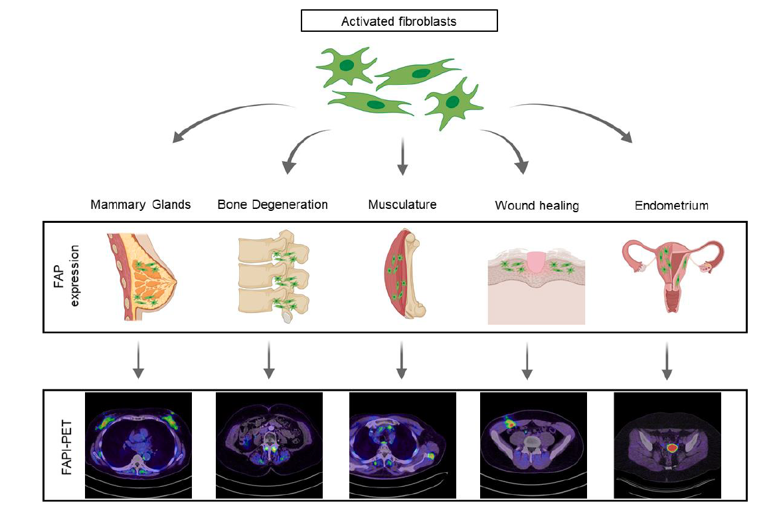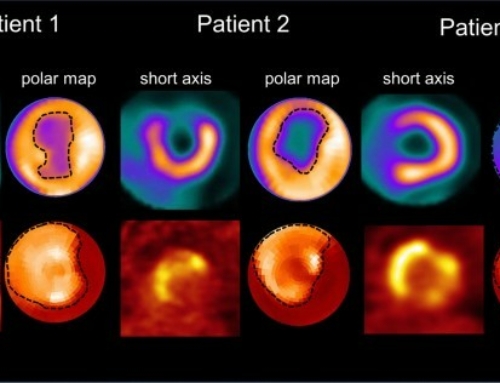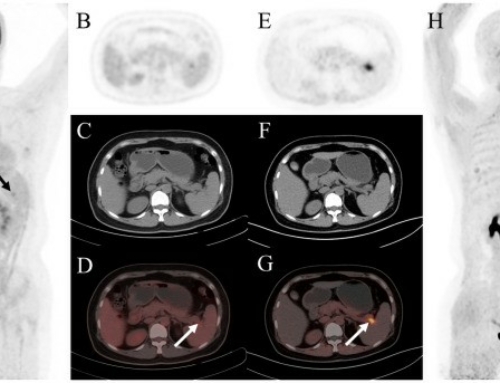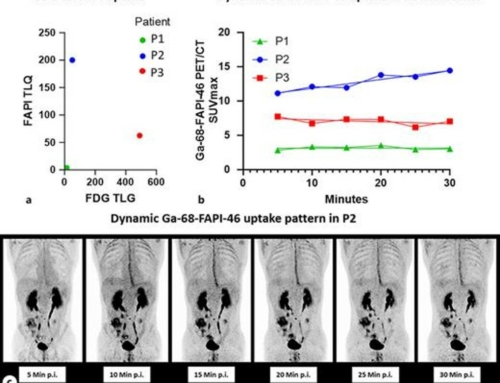Lukas Kessler, Justin Ferdinandus, Nader Hirmas, Fadi Zarrad, Michael Nader, David Kersting, Manuel Weber, Sandra Kazek, Miriam Sraieb, Rainer Hamacher, Katharina Lueckerath, Lale Umutlu, Wolfgang P Fendler, Christoph Rischpler
Abstract: Fibroblast activation protein inhibitor (FAPI) PET/CT is a new tool in the diagnostic workup of cancer. With a growing volume of applications, pitfalls and common findings need to be considered for 68Ga-FAPI PET/CT image interpretation. The aim of this study was to summarize common findings and report pitfalls in 68Ga-FAPI PET/CT.
Methods: Ninety-one patients underwent whole-body PET/CT with either FAPI-04 (n = 25) or FAPI-46 (n = 66). Findings were rated in a consensus session of 2 experienced readers. Pitfalls and common findings were defined as focal or localized uptake above the background level and categorized as unspecific or nonmalignant and grouped into degenerative, muscular, scarring/wound-healing, uterine, mammary gland, and head-and-neck findings. The frequency of findings was reported on a per-patient and per-group basis, and SUVmax, SUVmean, and SUVpeak were measured.
Results: Non-tumor-specific uptake was found in 81.3% of patients. The most frequent finding was uptake in degenerative lesions (51.6%), with a mean SUVmax of 7.7 ± 2.9, and head-and-neck findings (45.1%). Except for the salivary glands, the uptake values did not differ between 10 and 60 min after injection in most findings. Uterine uptake was found in most women (66.7%), with a mean SUVmax of 12.2 ± 7.3, and uptake correlated negatively with age (SUVmax, r = -0.6, P < 0.01; SUVpeak, r = -0.57, P < 0.01; SUVmean, r = -0.58, P < 0.01).
Conclusion: Pitfalls include non-tumor-specific 68Ga-FAPI uptake in degenerative lesions, muscle, the head and neck, scarring, the mammary glands, or the uterus. Here, we summarize the findings to help readers avoid common mistakes at centers introducing 68Ga-FAPI PET/CT.


![Efficacy of [68Ga]Ga-FAPI-PET as a non-invasive evaluation method of liver fibrosis](https://sofie.com/wp-content/uploads/2025/06/info.ibamolecular-500x383.png)
![Comparison of [99mTc]Tc-FAPI SPECT/CT and [18F]FDG PET/CT as predictive biomarkers for immunotherapy response in gastrointestinal cancer](https://sofie.com/wp-content/uploads/2025/06/info.ibamolecular-500x383.jpg)


